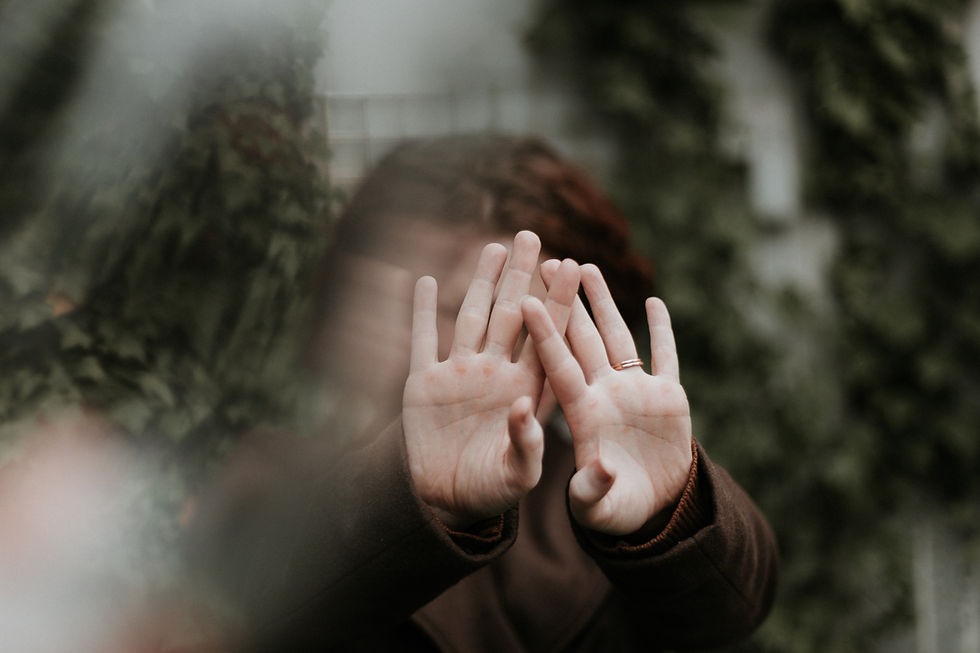How your upbringing made you an empath
- Break Free blog
- Jul 27, 2021
- 3 min read
‘I think you’re an empath’, my partner said when we were first dating. I was crying to a film, nothing strange for me there. I cry to most films. I cry watching Jane the Virgin. I cry because I see someone’s crying. Don’t most people?
Hmm, they don’t actually. I started researching this new word and here are some traits I found:
High empathy
Intimacy overwhelms you
Perfectionist
Have a good intuition
Take comfort in nature
Crowdedness stresses you out
It’s hard to not care
Sensitivity of senses
Need alone time
Avoiding conflict
Feeling like a misfit
Finding it hard to set boundaries
Ok. Check, check and check.
So how did this happen?
I was listening to a podcast with Dr. Judith Orloff on thriving as an empath. She was talking about how empaths are seen as highly sensitive people and that may seem like weakness to some. But actually, it’s a gift and you can thrive in different ways compared to people who are not empaths. Another thing that stroke me on that podcast, the way she spoke about her parents never really seeing her for who she is. Like there was a plan for her that she had to fulfill, completely ignoring what she wanted.
I then thought of a friend of mine who can be seen as hyper sensitive. She was talking about how upset she was because her dad wasn’t happy with her gift. Obviously, not showing joy when receiving a gift, even out of politeness, shows that there was something definitely off with her dad. But why did she take it to heart?
In addition, once I told a therapist how a fight with a former partner led me to not sleep all night. She told me that I am “enmeshed”, I have no armour, and that’s something to work on.
So, here’s my theory on why I became an empath, and maybe you might find it familiar to your situation:
· I grew up in a family of poor personal boundaries and abuse
· I was a very nervous and scared child, over-concerned about my parents who were always either troubled or absent. That increased my empathy.
· I was raised to be codependent, without an autonomous development. That made me enmeshed.
· I was not “seen”. My feelings or opinions were not something to be cared for or taken into consideration.
· What mattered was my parents needs and their rules about how I should be. So I learnt that other’s opinions matter more than mine. My judgment, was not to be trusted.
· So, I am in a perpetual perfectionism circle, because my purpose is to keep getting better (better when compared to what, god knows). I’m very strict with myself and less strict with others. Others are allowed to act in any way they want, but I’m not, because then I’m not a “good” child and will not be loved and will hurt mummy and daddy.
· Normally, love and acceptance helps a child build an armour. An armour of self-worth. Their opinions, dreams and emotions matter. They don’t need an external validation. That did not happen with me.
· Empaths are also described like a sponge that absorbs everything. Without an armour you’re vulnerable. Everything comes in. Because I’ve been raised to care about other people more than me, to mirror other people, and then care for them.
I find being an empath very hard, because it means I’m in emotional turmoil very often. But since I put a word to it and understood what it is, and how it can also benefit my life, I’ve been handling it way better. Being conscious of the turmoil and the source of it - my colleague who missed her deadline, my father’s irrational needs, my friend being in trouble - noticing the effects and putting down some boundaries makes it easier for me to free myself from the emotional responsibility of another person.
Being an empath is a power rather than weakness. We can sense what others cannot. Our deep and genuine emotions make you special.
But, let’s remember. It’s time to love ourselves first.
Self check-in
As a child, did you feel not seen or heard?
As a child, were you hyper-vigilant to your parents emotions?
Do you feel like a sponge - sucking all emotions in?
Do you feel like you can sense things other people can't?
Do you feel your happiest in nature?


Comments